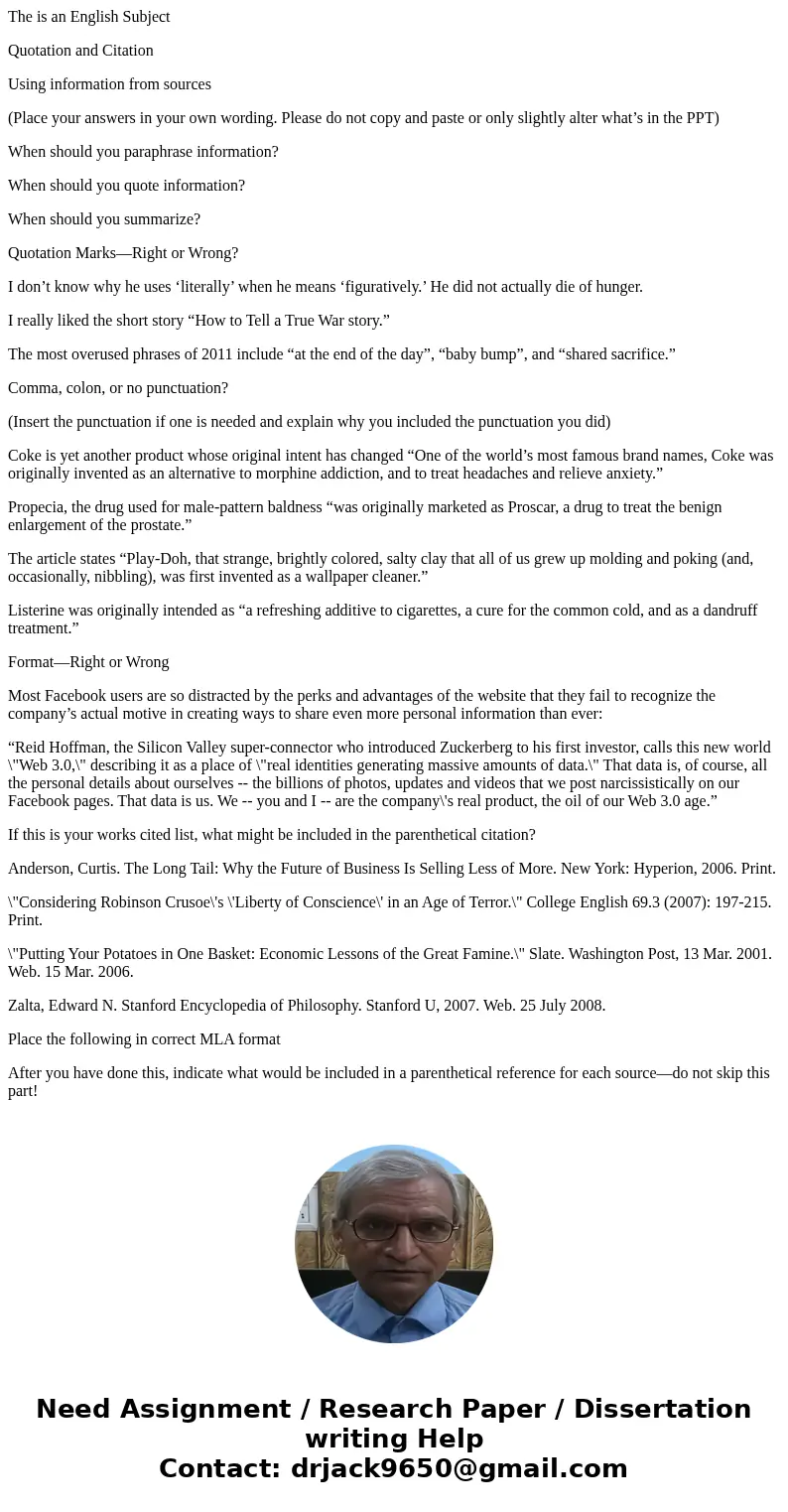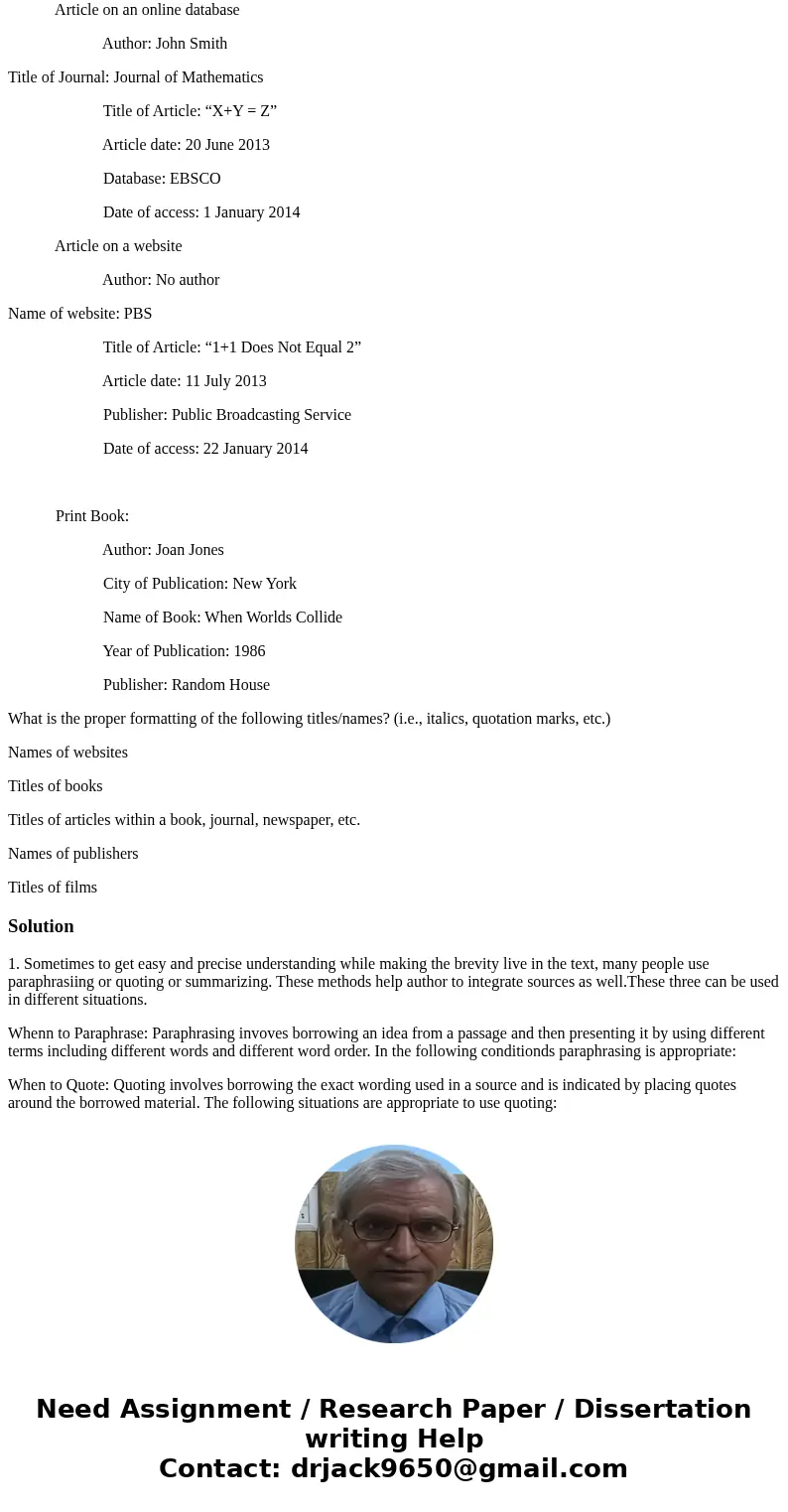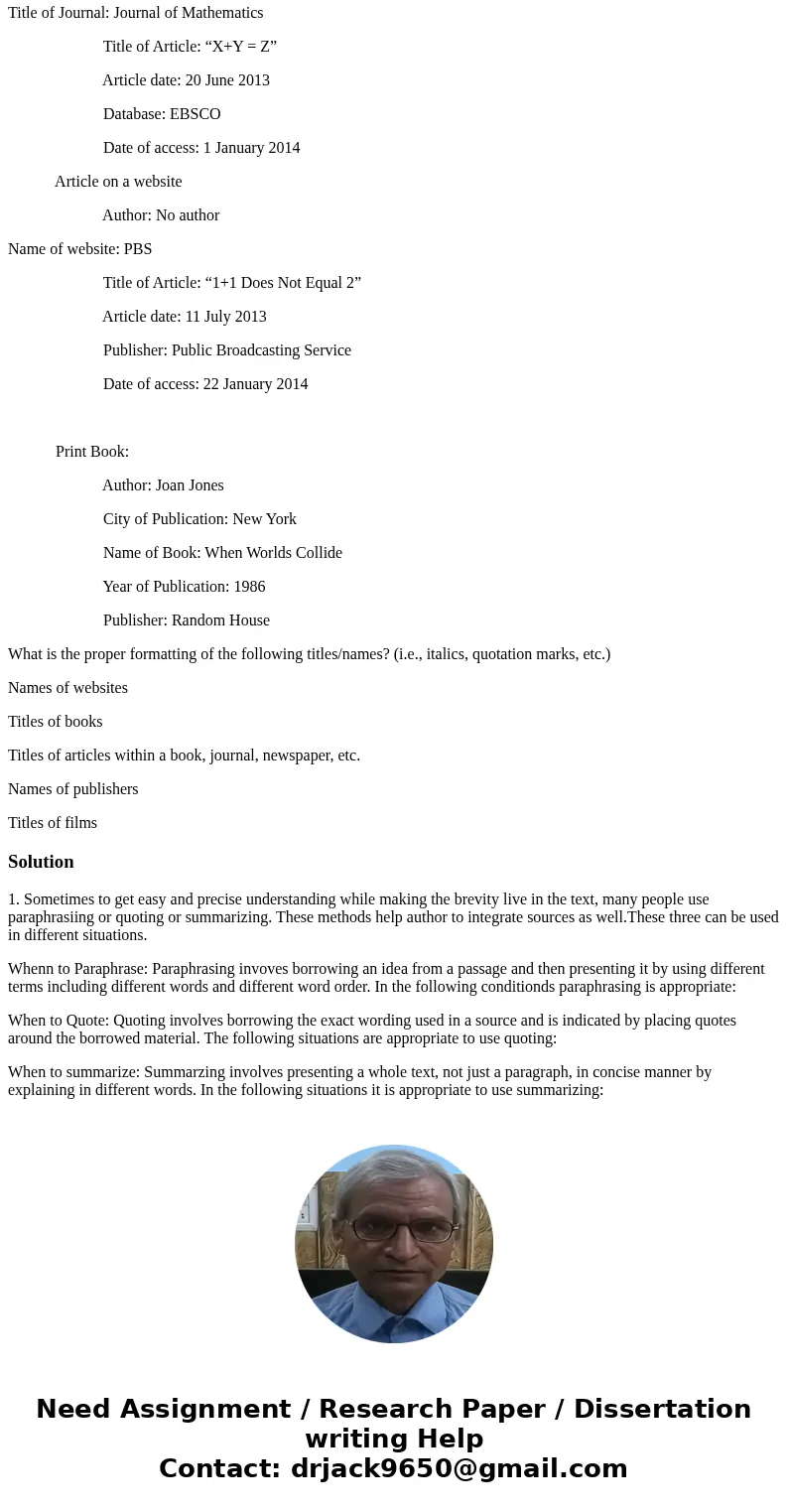The is an English Subject Quotation and Citation Using infor
The is an English Subject
Quotation and Citation
Using information from sources
(Place your answers in your own wording. Please do not copy and paste or only slightly alter what’s in the PPT)
When should you paraphrase information?
When should you quote information?
When should you summarize?
Quotation Marks—Right or Wrong?
I don’t know why he uses ‘literally’ when he means ‘figuratively.’ He did not actually die of hunger.
I really liked the short story “How to Tell a True War story.”
The most overused phrases of 2011 include “at the end of the day”, “baby bump”, and “shared sacrifice.”
Comma, colon, or no punctuation?
(Insert the punctuation if one is needed and explain why you included the punctuation you did)
Coke is yet another product whose original intent has changed “One of the world’s most famous brand names, Coke was originally invented as an alternative to morphine addiction, and to treat headaches and relieve anxiety.”
Propecia, the drug used for male-pattern baldness “was originally marketed as Proscar, a drug to treat the benign enlargement of the prostate.”
The article states “Play-Doh, that strange, brightly colored, salty clay that all of us grew up molding and poking (and, occasionally, nibbling), was first invented as a wallpaper cleaner.”
Listerine was originally intended as “a refreshing additive to cigarettes, a cure for the common cold, and as a dandruff treatment.”
Format—Right or Wrong
Most Facebook users are so distracted by the perks and advantages of the website that they fail to recognize the company’s actual motive in creating ways to share even more personal information than ever:
“Reid Hoffman, the Silicon Valley super-connector who introduced Zuckerberg to his first investor, calls this new world \"Web 3.0,\" describing it as a place of \"real identities generating massive amounts of data.\" That data is, of course, all the personal details about ourselves -- the billions of photos, updates and videos that we post narcissistically on our Facebook pages. That data is us. We -- you and I -- are the company\'s real product, the oil of our Web 3.0 age.”
If this is your works cited list, what might be included in the parenthetical citation?
Anderson, Curtis. The Long Tail: Why the Future of Business Is Selling Less of More. New York: Hyperion, 2006. Print.
\"Considering Robinson Crusoe\'s \'Liberty of Conscience\' in an Age of Terror.\" College English 69.3 (2007): 197-215. Print.
\"Putting Your Potatoes in One Basket: Economic Lessons of the Great Famine.\" Slate. Washington Post, 13 Mar. 2001. Web. 15 Mar. 2006.
Zalta, Edward N. Stanford Encyclopedia of Philosophy. Stanford U, 2007. Web. 25 July 2008.
Place the following in correct MLA format
After you have done this, indicate what would be included in a parenthetical reference for each source—do not skip this part!
Article on an online database
Author: John Smith
Title of Journal: Journal of Mathematics
Title of Article: “X+Y = Z”
Article date: 20 June 2013
Database: EBSCO
Date of access: 1 January 2014
Article on a website
Author: No author
Name of website: PBS
Title of Article: “1+1 Does Not Equal 2”
Article date: 11 July 2013
Publisher: Public Broadcasting Service
Date of access: 22 January 2014
Print Book:
Author: Joan Jones
City of Publication: New York
Name of Book: When Worlds Collide
Year of Publication: 1986
Publisher: Random House
What is the proper formatting of the following titles/names? (i.e., italics, quotation marks, etc.)
Names of websites
Titles of books
Titles of articles within a book, journal, newspaper, etc.
Names of publishers
Titles of films
Solution
1. Sometimes to get easy and precise understanding while making the brevity live in the text, many people use paraphrasiing or quoting or summarizing. These methods help author to integrate sources as well.These three can be used in different situations.
Whenn to Paraphrase: Paraphrasing invoves borrowing an idea from a passage and then presenting it by using different terms including different words and different word order. In the following conditionds paraphrasing is appropriate:
When to Quote: Quoting involves borrowing the exact wording used in a source and is indicated by placing quotes around the borrowed material. The following situations are appropriate to use quoting:
When to summarize: Summarzing involves presenting a whole text, not just a paragraph, in concise manner by explaining in different words. In the following situations it is appropriate to use summarizing:



 Homework Sourse
Homework Sourse